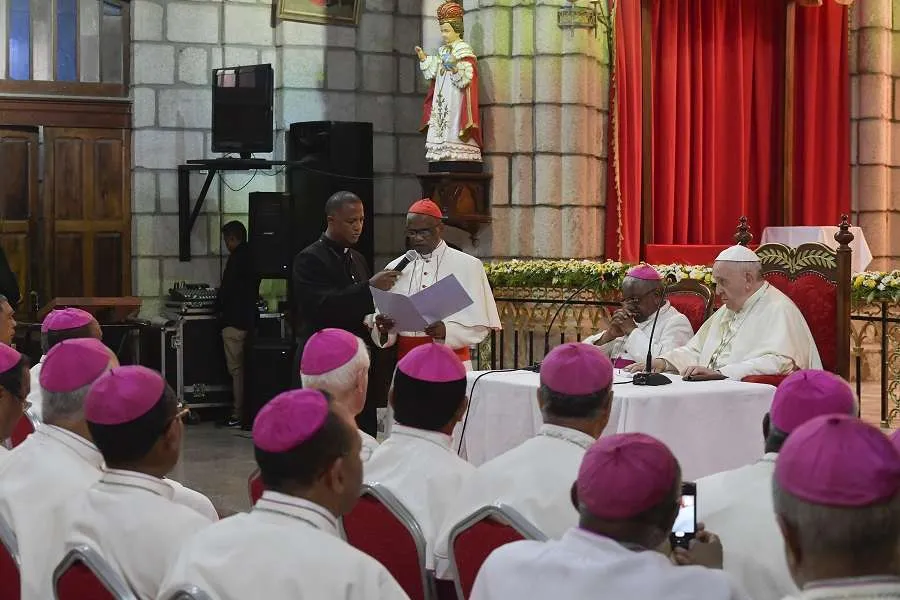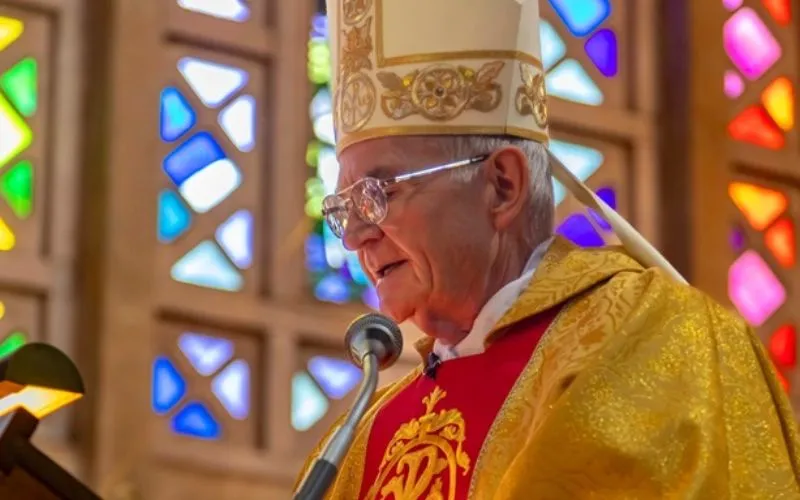He also urged the bishops to be spiritual fathers to their priests, encouraging them, guiding them, and listening to them, but warned about the risk of “young rigid priests.”
On the topic of religious and priestly vocations, the pope underlined the importance of the call to holiness, which he said is the “fundamental call, without which the others have no reason to exist.”
Accompanying people in their discernment to religious life and the priesthood takes patience, like the cultivation of the land, he said. “The harvest is plentiful and the Lord – who desires only real workers – is not limited in the ways he calls young people to make a generous gift of their
lives.”
He added that efforts to form faithful and holy workers should include laypeople, who are also called to labor for the harvest, and thanked the bishops for the ways they are already doing this.
“In this way they will be able to contribute to the transformation of society and the life of the Church in Madagascar,” he said, adding a request that the bishops resist the urge to “clericalize” the laity.
(Story continues below)
“Dear brothers, this great responsibility for the Lord’s field should challenge us to open our hearts and minds, and to banish the fear that tempts us to withdraw into ourselves and to cut ourselves off from others,” he concluded.
He mentioned that “two women protect this Cathedral. The chapel nearby holds the remains of Blessed Victoire Rasoamanarivo, who was able to do much good and to defend and spread the faith in difficult times. There is also the statue of the Virgin Mary, whose arms, outstretched to the valley and the hills, seem to embrace everything.”
“Let us ask these two women always to enlarge our hearts, to teach us the maternal compassion that women, like God himself, feel for the forgotten of the earth and to help us to sow seeds of hope,” he said.
Following his meeting with bishops, Pope Francis stopped for a moment of silent prayer before the tomb of Bl. Victoire Rasoamanarivo. The Malagasy woman was a teenage convert despite opposition from her family and defended the Catholic faith against Christian persecution in the country. She was beatified by St. John Paul II during his visit to Madagascar in 1989.
Hannah Brockhaus is Catholic News Agency's senior Rome correspondent. She grew up in Omaha, Nebraska, and has a degree in English from Truman State University in Missouri.








